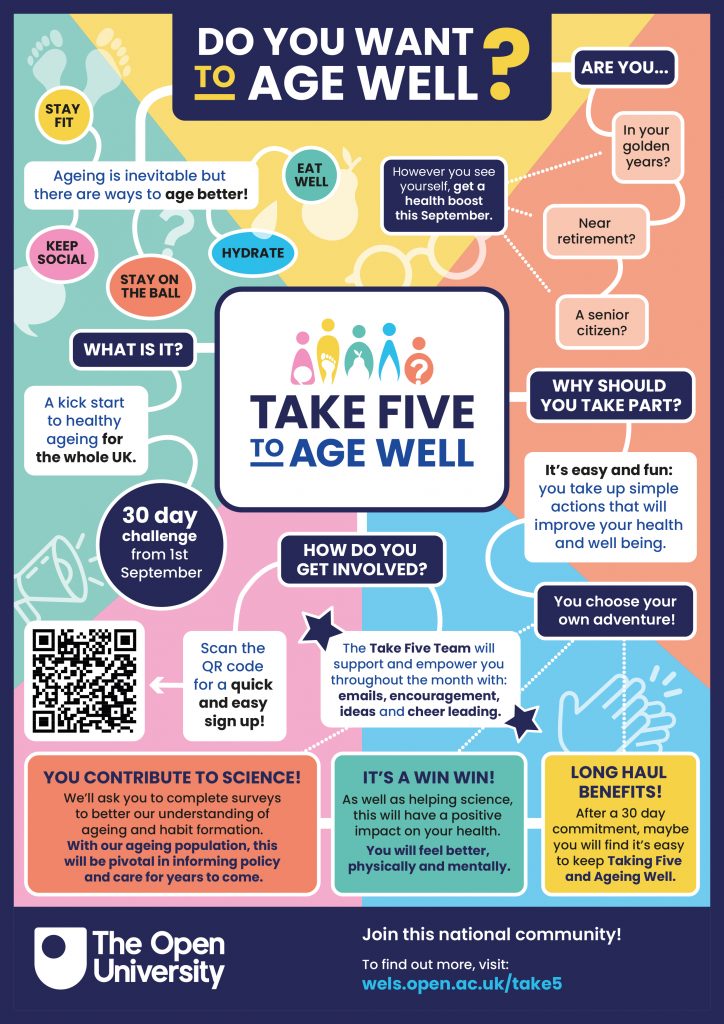As we journey through life, aging is an inevitable process that brings about changes in our bodies and minds. However, aging well is not merely about the passage of time; it’s about embracing health, vitality, and happiness regardless of age. While genetics play a role, lifestyle choices significantly impact how we age. By adopting health-promoting habits and making conscious decisions, we can enhance our quality of life and start aging gracefully.
The Power of Health and Lifestyle Changes
As we age, our bodies undergo various transformations, including decreased muscle mass, reduced bone density, and slower metabolism. Additionally, common health issues such as cardiovascular disease, diabetes, and cognitive decline become more prevalent. However, these changes need not dictate our wellbeing. Through proactive measures, we can mitigate the effects of aging and maintain optimal health.
Embracing Healthy Habits
- Nutritious Diet: A balanced diet rich in fruits, vegetables, whole grains, lean proteins, and healthy fats provides essential nutrients to support overall health. Limiting processed foods, sugars, and excessive salt intake can help prevent chronic conditions like hypertension and obesity.
- Regular Exercise: Physical activity is crucial for maintaining muscle strength, flexibility, and cardiovascular health. Aim for a combination of aerobic exercises, strength training, and flexibility exercises to improve endurance, balance, and mobility.
- Adequate Sleep: Quality sleep is essential for cognitive function, immune health, and emotional wellbeing. Establish a regular sleep schedule and create a relaxing bedtime routine to improve sleep quality.
- Stress Management: Chronic stress accelerates aging by contributing to inflammation and oxidative stress. Practice relaxation techniques such as meditation, deep breathing exercises, or engaging in hobbies to reduce stress levels.
- Social Connections: Maintaining social relationships and staying engaged with friends and family promotes mental and emotional health. Social interactions provide support, companionship, and a sense of belonging, which are vital for overall wellbeing.
- Mindful Aging: Embrace the aging process with a positive mindset. Focus on gratitude, acceptance, and self-care to cultivate resilience and emotional balance.

In the realm of balance-enhancing practices, yoga emerges as a standout, according to insights from Kate Lombardo, RYT-200 and Yoga Director of YogaRenew. In her view, yoga’s essence lies in its barefoot nature and emphasis on standing poses. “Yoga prompts you to tune into your feet—the very foundation of the postures—and how they root you in space,” Lombardo observes.
Take, for example, the Chair Pose (Utkatasana); it reveals how much of your body weight rests in your heels. Similarly, in a Standing Forward Fold (Uttanasana), you’ll find your weight shifts towards your toes, aligning the hips directly over the ankles, Lombardo elucidates.
Amidst a world where shoes often cloak our feet, Lombardo underscores how yoga serves as a corrective measure, nurturing foot and toe strength crucial for balance. “Yoga bolsters the functionality of your feet, laying a solid groundwork essential for balance… much like a house, if the foundation falters, so does the entire structure,” she adds.
Beyond individual poses, yoga fosters proprioception—the innate sense of body positioning—and heightens the mind-body connection, as affirmed by a 2023 systematic review in Yoga Mimamsa. Lombardo emphasizes its role in fortifying core muscles, enhancing stability, and boosting flexibility and mobility, all integral components for maintaining balance.
Preventing and Managing Common Health Problems
- Heart Health: Engage in regular cardiovascular exercise to strengthen the heart and lower the risk of heart disease. Adopting a heart-healthy diet low in saturated fats and cholesterol can also support heart health.
- Bone Health: Incorporate weight-bearing exercises such as walking, jogging, or resistance training to maintain bone density and prevent osteoporosis. Ensure an adequate intake of calcium and vitamin D through diet or supplements.
- Cognitive Function: Stay mentally active by challenging your brain with puzzles, games, or learning new skills. Additionally, prioritize sleep, manage stress, and maintain social connections to support cognitive function.
- Joint Health: Practice exercises that promote joint flexibility and strength, such as yoga or tai chi. Maintain a healthy weight to reduce strain on joints and prevent conditions like arthritis.
- Metabolic Health: Manage blood sugar levels through a balanced diet, regular exercise, and weight management. Monitor blood pressure and cholesterol levels regularly to prevent complications associated with diabetes and heart disease.
Conclusion
Aging well is within reach for everyone, regardless of age or genetic predisposition. By prioritizing health-promoting habits and making positive lifestyle changes, we can optimize our physical, mental, and emotional wellbeing as we age. Remember, it’s never too late to start adopting healthier habits and embracing a fulfilling life at any stage of the aging process. Let’s embark on this journey of aging with vitality, grace, and resilience.









